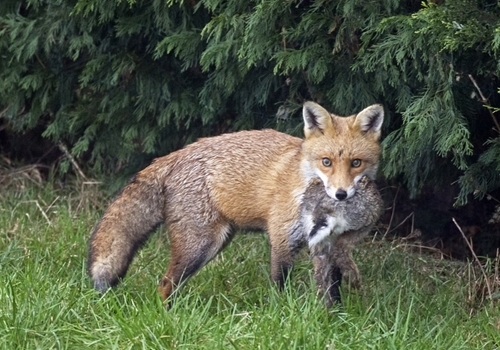
By Ross Macleod, Head of GWCT Policy (Scotland)
It is very difficult to come to terms with the Environment Minister Gillian Martin MSP’s decision to ban all types of snares in Scotland given the resulting prospects for rural management and biodiversity. Soul-destroying even.
Not because we don’t appreciate the arguments around animal welfare. After all, GWCT has poured decades of research into technical improvements to ensure the that the humane cable restraint (HCR) meets the Agreement on International Humane Trapping Standards (AIHTS).
That work has been assiduously backed up by commitment to codes of practice, training courses, assessment and predator control health-checks. We went further in Scotland, introducing mobile app projects that enabled operators to record information on HCR locations, visits and captures.
In giving evidence to the Rural Affairs and Islands Committee we made every effort to explain the distinction between deliberate abuse of snares by those intent on committing crime, who will no doubt continue to do so regardless of the change in the law, and professional users of HCRs supporting rare, ground-nesting birds and vulnerable livestock.
After all the efforts to convince the Scottish Government to recognise conservation concerns alongside those of welfare, and our proposal for a tightly monitored licensing scheme as a compromise, the most alarming aspect to the decision is the apparent indifference to the weight of GWCT research science made available to the Administration.
This included the seminal Upland Predation experiment conducted between 2000 and 2008 at Otterburn, the key part played by the HCR in the Life Waders for Real project in the Avon Valley, which successfully reversed the decline of lapwing, and the recent peer-reviewed paper ‘Lethal predator control on UK moorland is associated with high breeding success of curlew’. All point to the critical role of predation control in supporting key species recovery and their maintenance.
Within this evidence base, we clearly showed that in some locations the use of restraints could make up as much as 80% of fox control. We also explained the reason for this, which is that alternative control methods such as shooting are not sufficient to replace the use of HCRs in situations where habitat and seasonal changes make their use impractical. We did receive questions from the Scottish Government about animal welfare, but precious little about the conservation aspects of predator control. It has always felt like a one-dimensional dialogue.
In Scotland, a biodiversity emergency was proclaimed via the Edinburgh Declaration in April 2019. The Scottish Government endorsed the Leaders Pledge at COP 26 in 2021 to reverse nature loss by 2030. The minister’s action is therefore all the more inexplicable in the context of the sands of time running out for recovery of so many iconic species and the potential for predator control to provide a vital lifeline. The wise words of our recently retired colleague, Dr Jonathan Reynolds, keep haunting me at the moment:
“Predation may often contribute to prey declines but is unlikely ever to be the sole cause. What we do know is that predator control is often transformative as a remedial measure. There are many examples where habitats have been lovingly restored but the response of the target species is underwhelming. You worry that some unconsidered element of the habitat is missing. But add effective predator control and suddenly productivity booms. So clearly, at that late stage of decline (at least), predation is holding things back, and predator control is a way of getting them going again.”
The administration has elsewhere recognised the value of an adaptive management approach. You might think this would allow the trial of strict licencing system, but it seems not. I have an awful foreboding, and no sense of satisfaction, that at some point in the near future, the land managers who have proposed a licensing solution will be saying: ‘we told you so’.